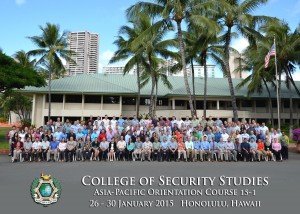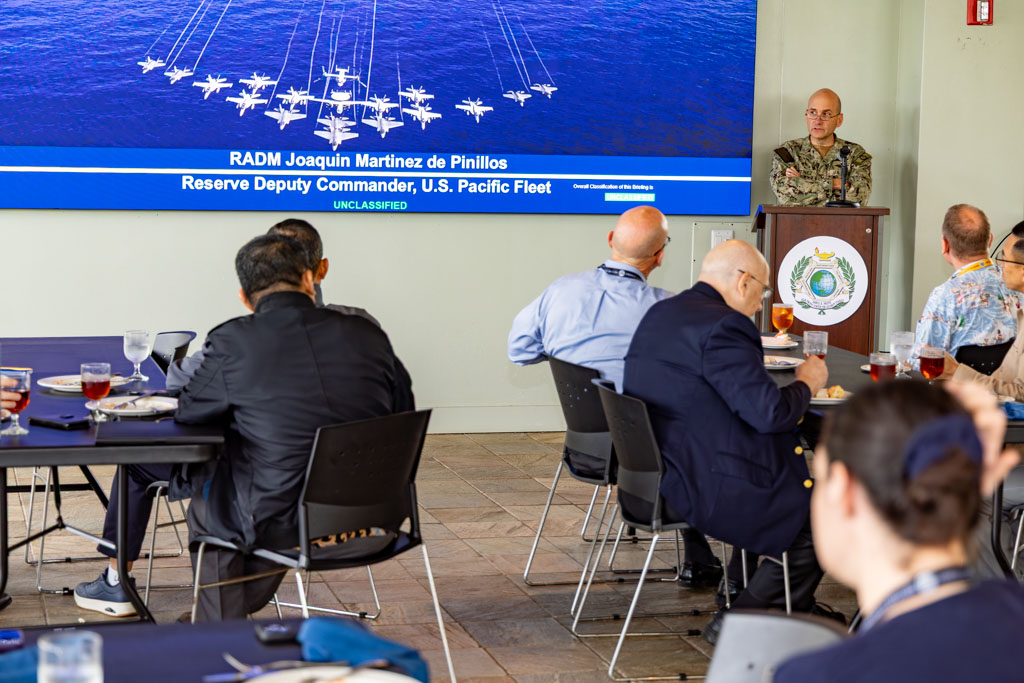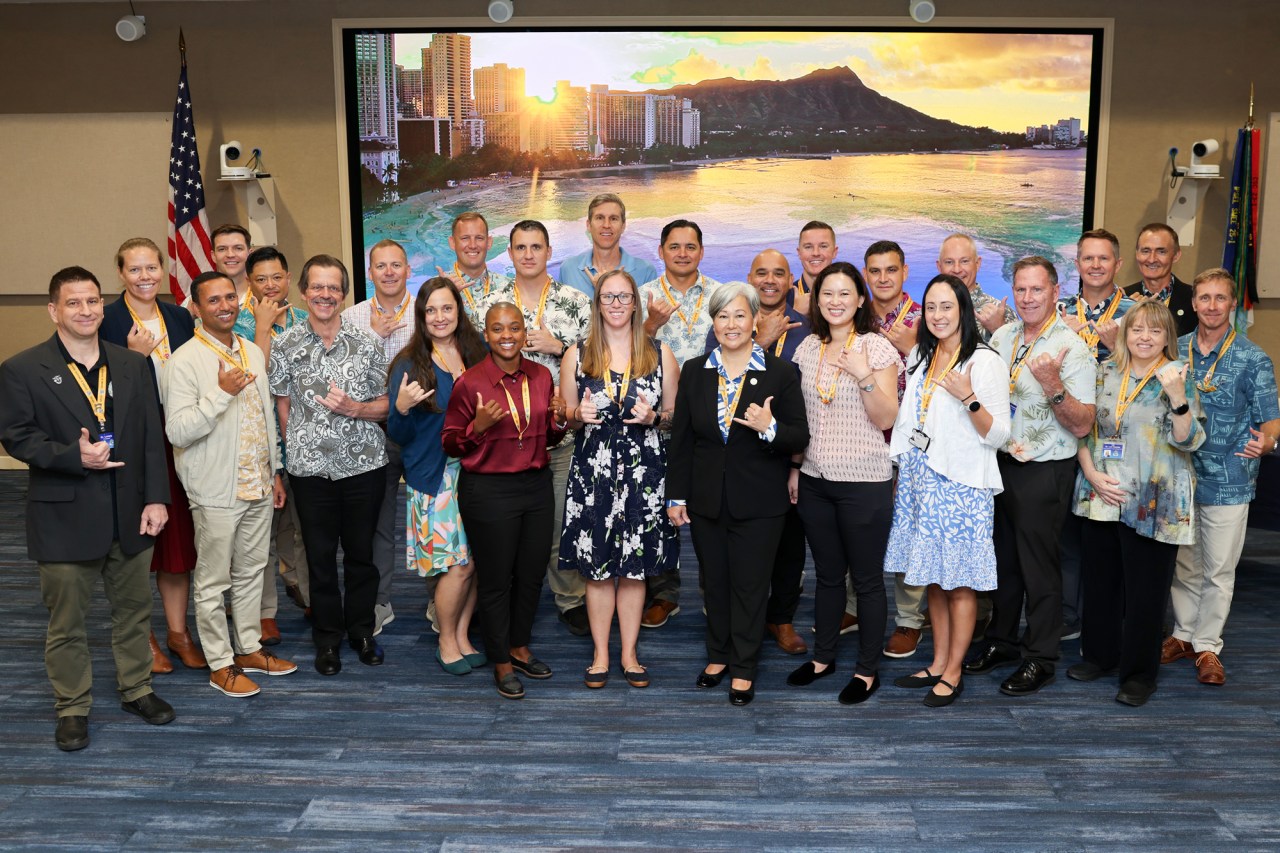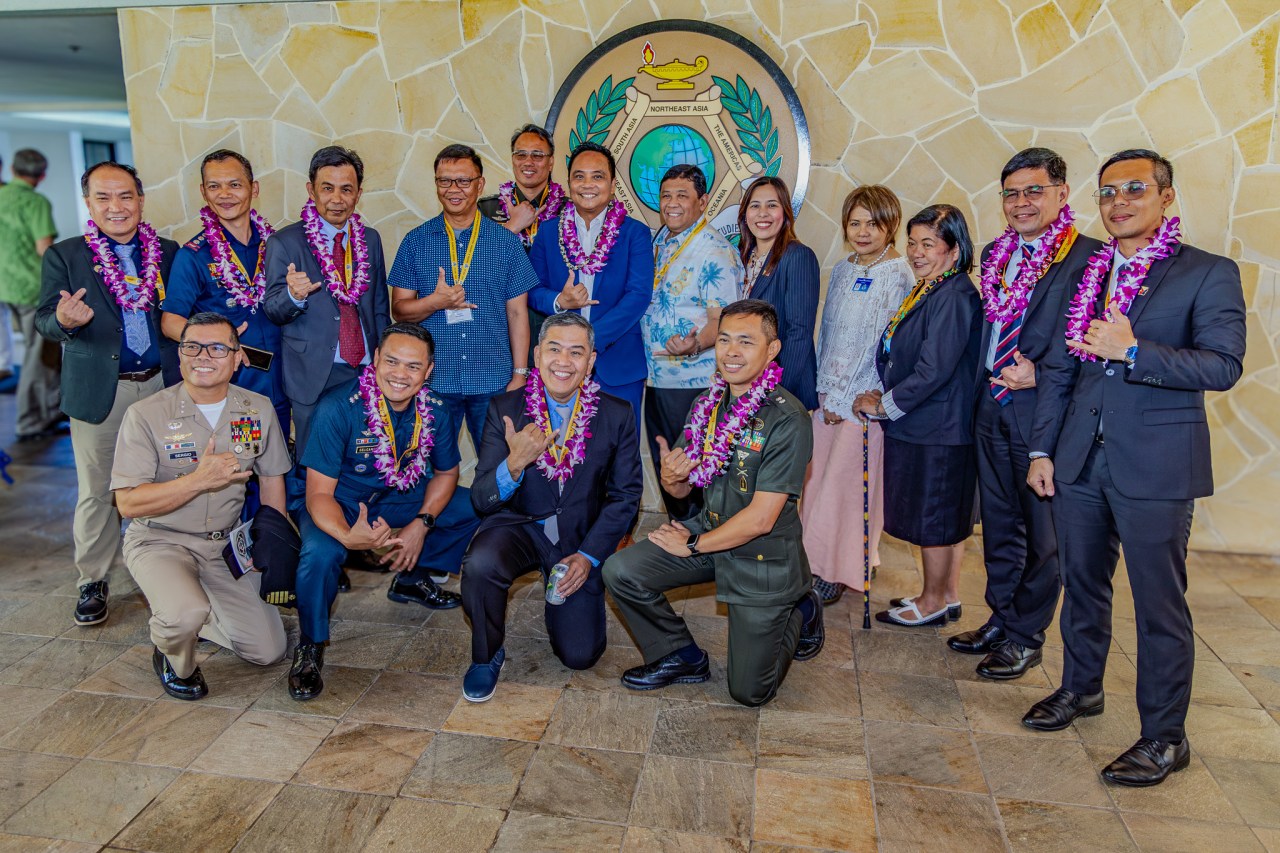 The largest class in its 20-year history graduated today from the Asia-Pacific Center for Security Studies. One hundred fifty-one Fellows, including 17 international Fellows, completed the Asia-Pacific Orientation Course held here Jan. 26-30.
The largest class in its 20-year history graduated today from the Asia-Pacific Center for Security Studies. One hundred fifty-one Fellows, including 17 international Fellows, completed the Asia-Pacific Orientation Course held here Jan. 26-30.
For two decades, the Center has employed APOC, five other courses and multiple workshops to educate more than 9,000 international security practitioners on socio-economic and politico-military factors impacting global stability and development. The latest APOC’s class size reflects the Center’s growing influence in the global security studies arena.
APOC is comprised of mid-level military officers and civilian equivalents serving in defense, government, humanitarian and other security-related fields. A five-day course, it’s held three times annually with mobile versions in the mainland United States as needed.
“The course’s intent is to provide Fellows a greater understanding of issues that drive the region’s complex relationships and challenges,” said APCSS course manager Cmdr. Alan Chace. “They leave the Center better equipped to engage internationally and make more informed decisions in their areas of operation.”
The January course featured 14 lecture topics, several of which addressed current issues and trends specific to major sub-regions, such as Northeast Asia and Oceania. Other lecture topics covered the high-profile transnational issues of cybersecurity, terrorism and climate change.
Addressing cybersecurity, Dr. Lora Saalman detailed the enormous economic and security impacts of attacks on government, private and commercial networks. She used the recent hacking of Sony systems to illustrate global communication vulnerabilities and how criminals and terrorists exploit them.
Rosalyn Leitch, a project manager with Pacific Northwest National Laboratory, praised Saalman’s handling of a complex subject. “She covered a lot of information…a ton of terms…in a way that was digestible; it’s not easy to do that with cybersecurity. Leitch works to ensure physical and cybersecurity at the Department of Energy lab. The lecture, she added, gave her deeper insight into the recent Sony incident and military cyber issues.
Course Fellows choose four of 14 offered electives. Among elective classes were “China’s World: Myths, Puzzles & FAQs,” “North Korea’s Evolving Strategy in the Face of Shrinking Options,” and “Technology Futures.”
These electives, along with APOC’s seminars and lectures, facilitated knowledge growth while helping Fellows enhance their network of international and interagency contacts.
“The combination of classes APCSS put together is its greatest strength; it (provides) a whole-of-government perspective with a combination of professional and academic perspectives,” said Dr. Imes Chiu, chief of applied research at the Center for Excellence in Disaster Management and Humanitarian Assistance in Honolulu. She added her now expanded regional knowledge is further enhanced by what she called the Center’s “cross-pollination” effect; APCC enables a diverse group of security practitioners to share expertise and experience while forming long-lasting connections that enhance future collaboration.
Joining Chiu in APOC 15-1 were Fellows from Australia, Canada, Japan, Korea, New Zealand, Singapore, and Taiwan.
APCSS is one of Department of Defense’s five regional security studies centers. Military and civilian representatives, most from the United States and Asia-Pacific nations, participate in a comprehensive program of executive education, professional exchanges and outreach events in Hawaii and throughout the Asia-Pacific region. Since the Center’s 1995 opening, alumni representing over 122 countries and territories have attended APCSS courses and workshops.
-END-









Leave A Comment